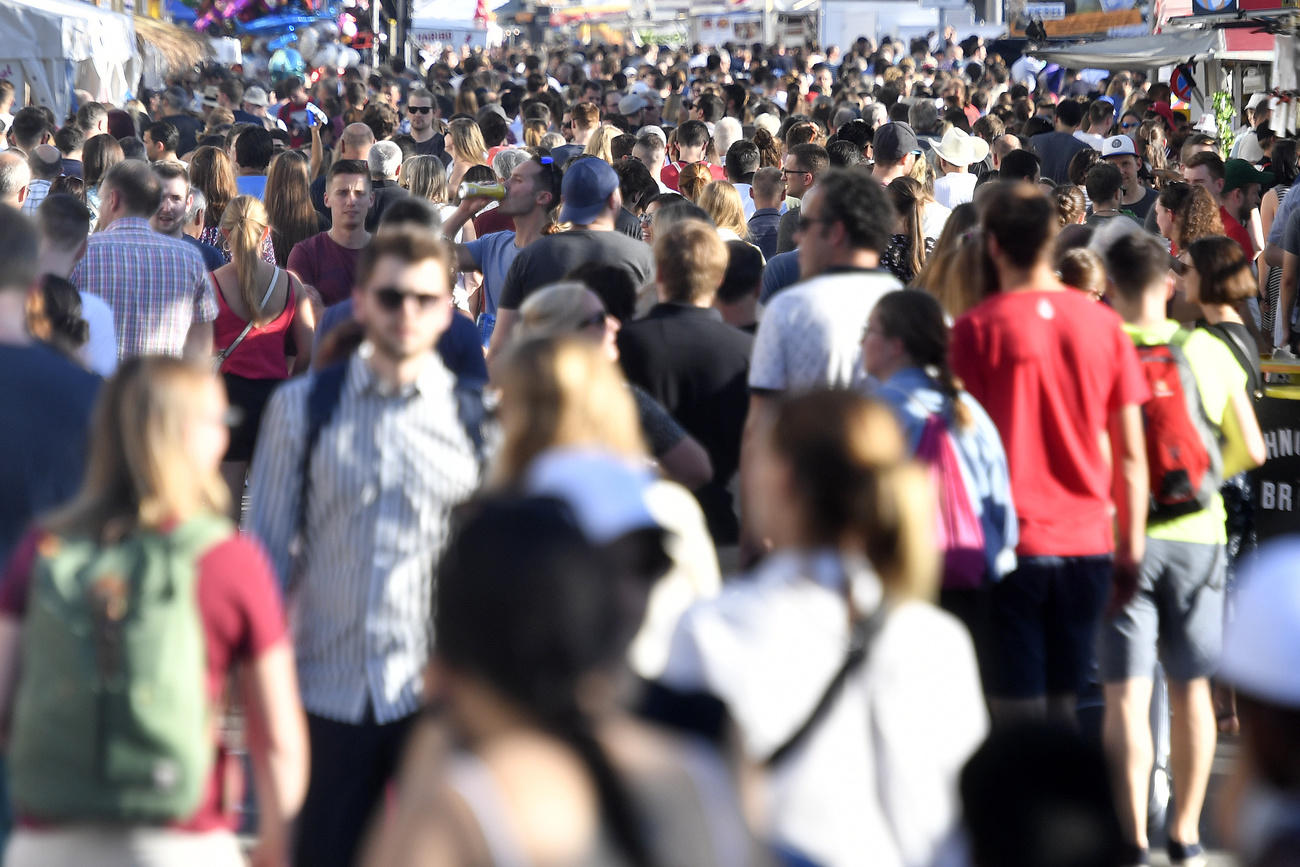
Record number of deaths reported in Switzerland in 2020

A record 76,200 deaths were registered in Switzerland last year, an increase of 12.4% on 2019. Life expectancy, births, marriages and divorces all fell, with the Covid-19 pandemic affecting “various demographic events”, the Federal Statistical Office (FSO) said.
Switzerland, which has a population of 8.6 million, suffered two “death waves”, the FSO said on TuesdayExternal link. In March-April 2020 it saw nearly 1,700 more deaths than in the same period of 2019 (+14%). From October to December it recorded almost 7,800 more (+45%).
Among Swiss citizens the number of deaths was 13.7% higher for men and 9.3% higher for women. In the non-Swiss population the difference was 22.8% for men and 20.4% for women.
The increase in deaths among people aged 80 or more (+15.5%) was more marked than in other age groups.
Due to the increase in mortality in old age, life expectancy has decreased. While a 65-year-old man could previously expect to live for another 20 years, last year he could expect another 19.3 years. Life expectancy at 65 for women dropped by 0.5 years from 22.7 to 22.2 years.

More
Swiss population continues to age and diversify
15.6-year itch
The pandemic has also slowed the natural growth of the population, i.e. the difference between births and deaths. This almost halved, from 18,400 in 2019 to 9,700 in 2020. In addition to the increase in deaths, this is also due to a slight decline in births.
Births fell from 86,200 in 2019 to 85,900, the lowest figure since 2013. The number of female births fell by 1%, while the number of male births rose by 0.3%.
Fewer people tied the knot last year. The number of marriages fell by 9.8% to 35,200, while the number of registered partnerships fell by 3.4% to 651.
Fewer people also untied the knot, with 4% fewer divorces (16,200). At the time of divorce the average marriage had lasted 15.6 years.

More
Coronavirus: the situation in Switzerland

In compliance with the JTI standards
More: SWI swissinfo.ch certified by the Journalism Trust Initiative
















![The four-metre-long painting "Sonntag der Bergbauern" [Sunday of the Mountain Farmers, 1923-24/26] had to be removed by a crane from the German Chancellery in Berlin for the exhibition in Bern.](https://www.swissinfo.ch/content/wp-content/uploads/sites/13/2025/12/01_Pressebild_KirchnerxKirchner.jpg?ver=a45b19f3)











You can find an overview of ongoing debates with our journalists here . Please join us!
If you want to start a conversation about a topic raised in this article or want to report factual errors, email us at english@swissinfo.ch.